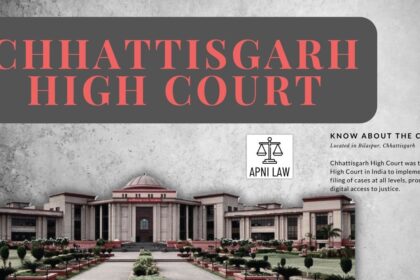Code: Section 21 POCSO Act
(1) Any person, who fails to report the commission of an offence under sub-section (1) of section 19 or section 20 or who fails to record such offence under sub-section (2) of section 19 shall be punished with imprisonment of either description which may extend to six months or with fine or with both.
(2) Any person, being in-charge of any company or an institution (by whatever name called) who fails to report the commission of an offence under sub-section (1) of section 19 in respect of a subordinate under his control, shall be punished with imprisonment for a term which may extend to one year and with fine.
(3) The provisions of sub-section (1) shall not apply to a child under this Act.
Explanation of Section 21 POCSO
Section 21 of the Protection of Children from Sexual Offences Act (POCSO) mandates that any individual who fails to report or record an offence related to child sexual exploitation, as outlined in Section 19 or Section 20, is subject to punishment. The law places an emphasis on the responsibility of individuals and institutions to report such offences promptly.
Key Provisions:
- Failure to Report or Record an Offence:
- A person who fails to report an offence, as required under Section 19 or Section 20, or fails to record the offence, shall face imprisonment of up to six months, a fine, or both.
- Failure to Report by Institutions:
- Any individual in charge of an institution (such as a company, school, or organization) who fails to report an offence committed by a subordinate is punishable with imprisonment for up to one year and may also face a fine.
- Exception for Children:
- The provision does not apply to children, meaning that children are not held responsible for failing to report or record offences under this section.
Key Points to Remember
- Failure to Report or Record:
- A failure to report or failure to record an offence related to child sexual exploitation will lead to legal consequences, including possible imprisonment.
- Responsibility of Employers/Institutions:
- Employers or individuals in charge of institutions have an added responsibility to report offences involving their subordinates. Failure to do so could result in more severe penalties, including imprisonment for up to one year.
- Exemptions for Children:
- The law acknowledges that children cannot be held accountable for not reporting or recording such offences.
Illustration
Example 1: Failure to Report an Offence
A teacher at a school becomes aware of a case of sexual exploitation involving a student but does not report it to the authorities as required under Section 19 of the POCSO Act. The teacher can be punished under Section 21 with imprisonment for up to six months or with a fine or both.
Example 2: Employer’s Responsibility
A manager of a childcare institution fails to report an offence involving a subordinate under their control. The manager could face imprisonment for up to one year and a fine for not fulfilling the reporting requirement as mandated under Section 19.
Common Questions & Answers
1. What is the punishment for failing to report an offence under the POCSO Act?
Any person who fails to report an offence under Section 19 or Section 20 may face imprisonment for up to six months, a fine, or both.
2. Is there a more severe penalty for failure to report by institutions or employers?
Yes, an individual in charge of an institution or company who fails to report an offence by a subordinate could face up to one year in prison and a fine.
3. Are children penalized for failing to report or record offences?
No, the provisions of Section 21(1) do not apply to children under the POCSO Act.
Conclusion
Section 21 of the POCSO Act highlights the importance of timely reporting and recording of offences related to child sexual exploitation. It sets clear penalties for individuals and institutions that fail to fulfill their reporting obligations. By ensuring swift action, this section aims to protect children from sexual offences and hold accountable those who neglect their duty to report such incidents.
For further information on child protection laws, visit ApniLaw.








